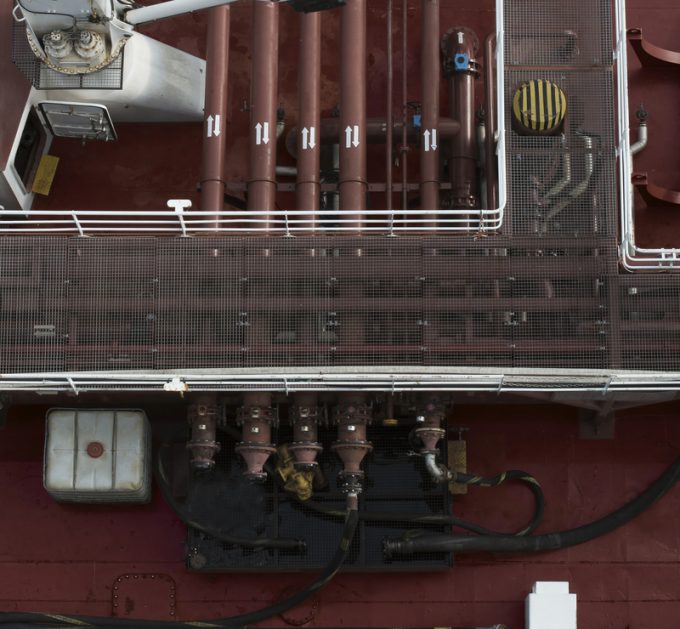'Usual' shortage of seasonal workers creating delays on Europe's waterways
Shortages of seasonal workers have prompted delays across Europe’s inland waterways, leaving many in the ...
TFII: SOLID AS USUALMAERSK: WEAKENINGF: FALLING OFF A CLIFFAAPL: 'BOTTLENECK IN MAINLAND CHINA'AAPL: CHINA TRENDSDHL: GROWTH CAPEXR: ANOTHER SOLID DELIVERYMFT: HERE COMES THE FALLDSV: LOOK AT SCHENKER PERFORMANCEUPS: A WAVE OF DOWNGRADES DSV: BARGAIN BINKNX: EARNINGS OUTODFL: RISING AND FALLING AND THEN RISING
TFII: SOLID AS USUALMAERSK: WEAKENINGF: FALLING OFF A CLIFFAAPL: 'BOTTLENECK IN MAINLAND CHINA'AAPL: CHINA TRENDSDHL: GROWTH CAPEXR: ANOTHER SOLID DELIVERYMFT: HERE COMES THE FALLDSV: LOOK AT SCHENKER PERFORMANCEUPS: A WAVE OF DOWNGRADES DSV: BARGAIN BINKNX: EARNINGS OUTODFL: RISING AND FALLING AND THEN RISING

Carriers and shippers remain in dispute over who will pay for compliance with the pending sulphur fuel cap.
And they have further concerns over unified global enforcement.
At the European Shippers’ Council Maritime Day 2019, Nick Lurkin, of the Royal Association of Netherlands’ Shipowners (KVNR), said carrier customers needed to accept the cap.
“With the IMO regulations there is no delay, even if there are still some that think it will be delayed – it won’t. And as shipowners, we do not want any delays as all they bring is uncertainty, although it seems there remains a lack of cohesion in terms of fuel availability.”
According to numbers given at the event, fuel prices could increase by as much as 85% following the introduction of the cap on January 1 2020.
And some carriers have already begun implementing surcharges to cover the expected hike in costs, angering shippers.
“We understand some shippers are unhappy with these surcharges, but there are very clear reasons,” said Mr Lurkin. “It’s because we cannot change to low-sulphur fuel on 31 December, we need to be bunkering now, so it is ready to use on 1 January.”
Mr Lurkin’s comments were echoed by the port of Rotterdam’s advisor of business intelligence, Ronald Backers, who agreed carriers needed to bunker now to be ready.
He added that he expected compliance in Europe to be “very high”, but remained unsure about the wider shipping community.
“Be aware that this is coming so you know where your ships are going and know that you will be compliant,” he added.
“But the sulphur cap should be seen as effective in combatting emissions, the previous cap made a marked difference in the quality of air in the port of Rotterdam region.”
S&P Global’s editor of Global Container Freight Market George Griffiths told The Loadstar that while shippers believed any surcharges should only come into force as of 1 Janaury, this was not really feasible.
He said in general there seemed to be a market consensus that the fourth quarter of this year represented the best time to implement the surcharges.
“Indeed this does raise the question that some shippers will in essence get stung by their carriers for a period in which they won’t be carrying the goods,” continued Mr Griffith.
“However I doubt it – I imagine that these are for annual negotiations and so it is in essence a way for carriers to protect their margins ahead of the new rules, as none of the market wants to see another Hanjin situation.
“As a result, and as it is unlikely that the cargoes with low sulphur surcharges are spot cargoes, I think that this is just part of the new bunker offerings that will be standardised across the board, but just a first mover.”
He also expressed doubt over the lack of availability of compliant fuels, noting such concerns formed part of the reasoning behind the 1 March implementation date of the carriage ban on higher sulphur fuel.
“This will in essence prevent anyone leaving the European zone, filling up with non-compliant fuel, and ballasting back to Europe,” Mr Griffith continued.
“So while I see teething issues with compliance in Q1, there seems to be agreement that by the start of Q2 there will be enough fuel to go round that the IMO can enforce such rules.”
However, concerns over availability of the new low-sulphur fuel remain and Ghanayapad Tantipipatpong, of the Thai Shippers’ Council Alliance, said Thailand was unsure where it would source compliant fuel. Mr Lurking added that expectations were that Africa and South America would also struggle to source enough compliant fuel.
“This means there’s a lack of cohesion across the planet in terms of availability, and so we are calling on ports to be proactive to help address this,” he said.
“For example, we’d like to see them bring in mandatory speed limits and better organise arrival slots to reduce uncertainty and prevent ships full-steaming and then idling.
“If ports were more flexible on this front, it would mean ships could slow-steam, which is environmentally better and use less fuel.”
Comment on this article